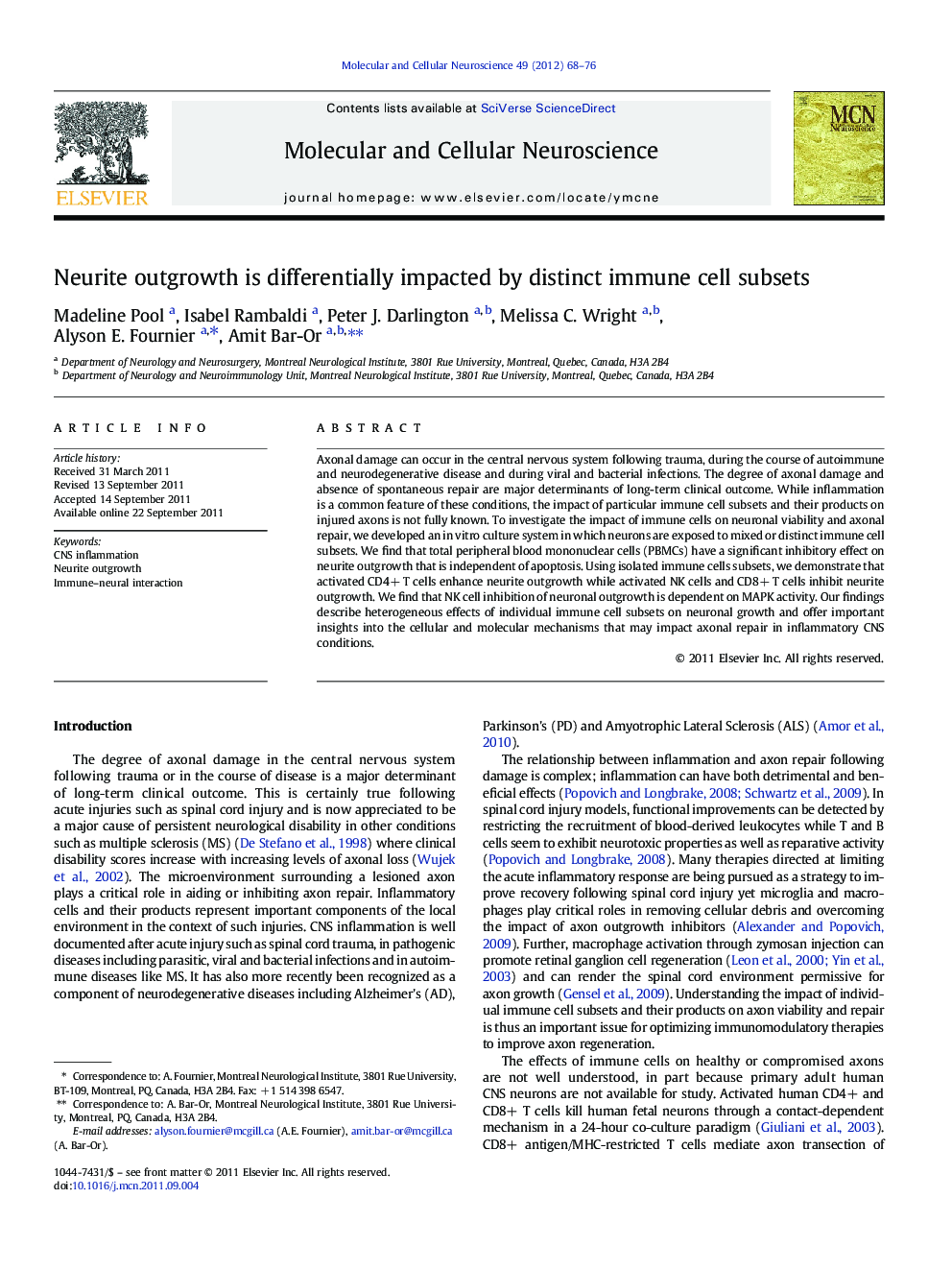| Article ID | Journal | Published Year | Pages | File Type |
|---|---|---|---|---|
| 2198617 | Molecular and Cellular Neuroscience | 2012 | 9 Pages |
Axonal damage can occur in the central nervous system following trauma, during the course of autoimmune and neurodegenerative disease and during viral and bacterial infections. The degree of axonal damage and absence of spontaneous repair are major determinants of long-term clinical outcome. While inflammation is a common feature of these conditions, the impact of particular immune cell subsets and their products on injured axons is not fully known. To investigate the impact of immune cells on neuronal viability and axonal repair, we developed an in vitro culture system in which neurons are exposed to mixed or distinct immune cell subsets. We find that total peripheral blood mononuclear cells (PBMCs) have a significant inhibitory effect on neurite outgrowth that is independent of apoptosis. Using isolated immune cells subsets, we demonstrate that activated CD4+ T cells enhance neurite outgrowth while activated NK cells and CD8+ T cells inhibit neurite outgrowth. We find that NK cell inhibition of neuronal outgrowth is dependent on MAPK activity. Our findings describe heterogeneous effects of individual immune cell subsets on neuronal growth and offer important insights into the cellular and molecular mechanisms that may impact axonal repair in inflammatory CNS conditions.
